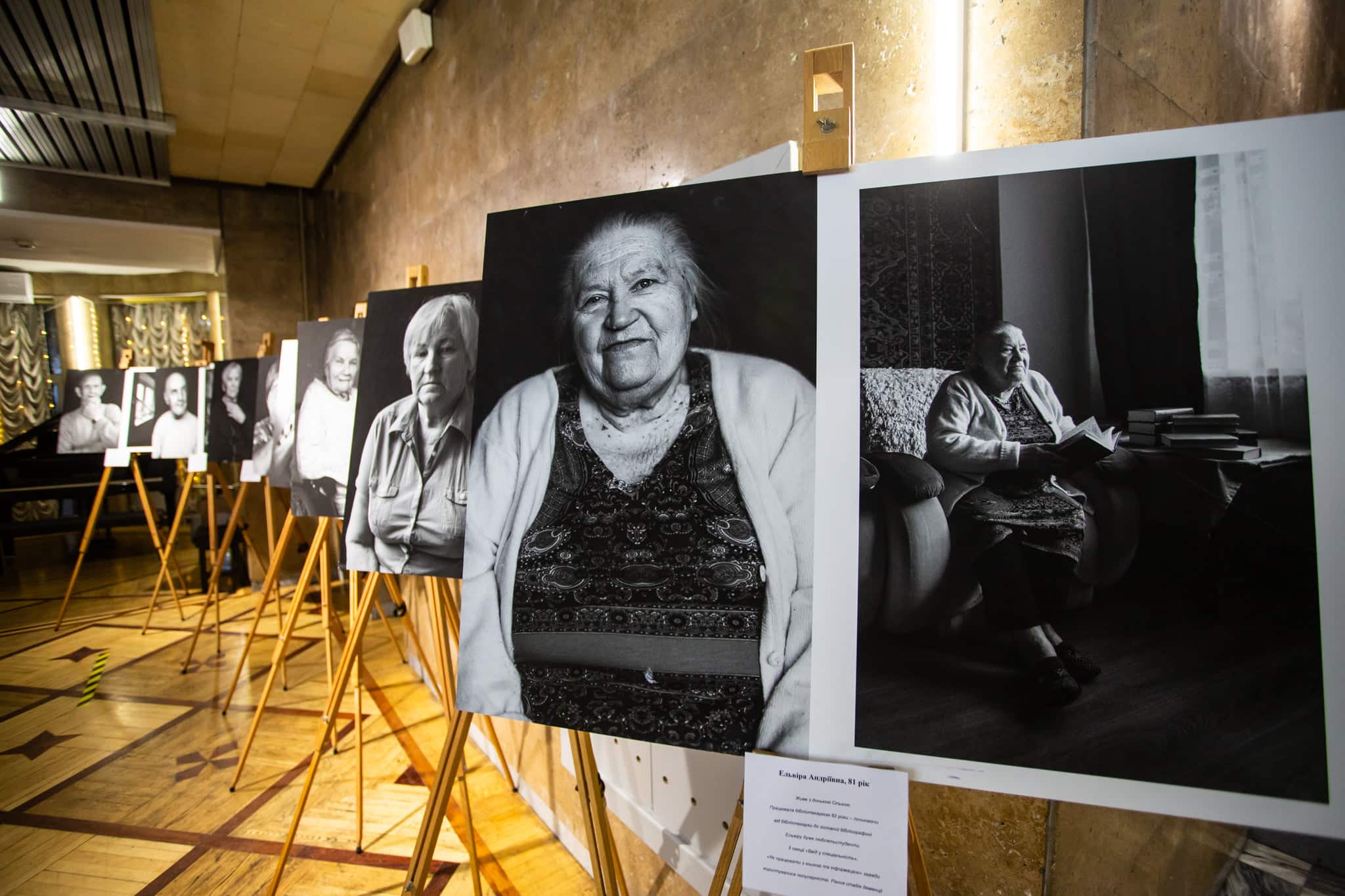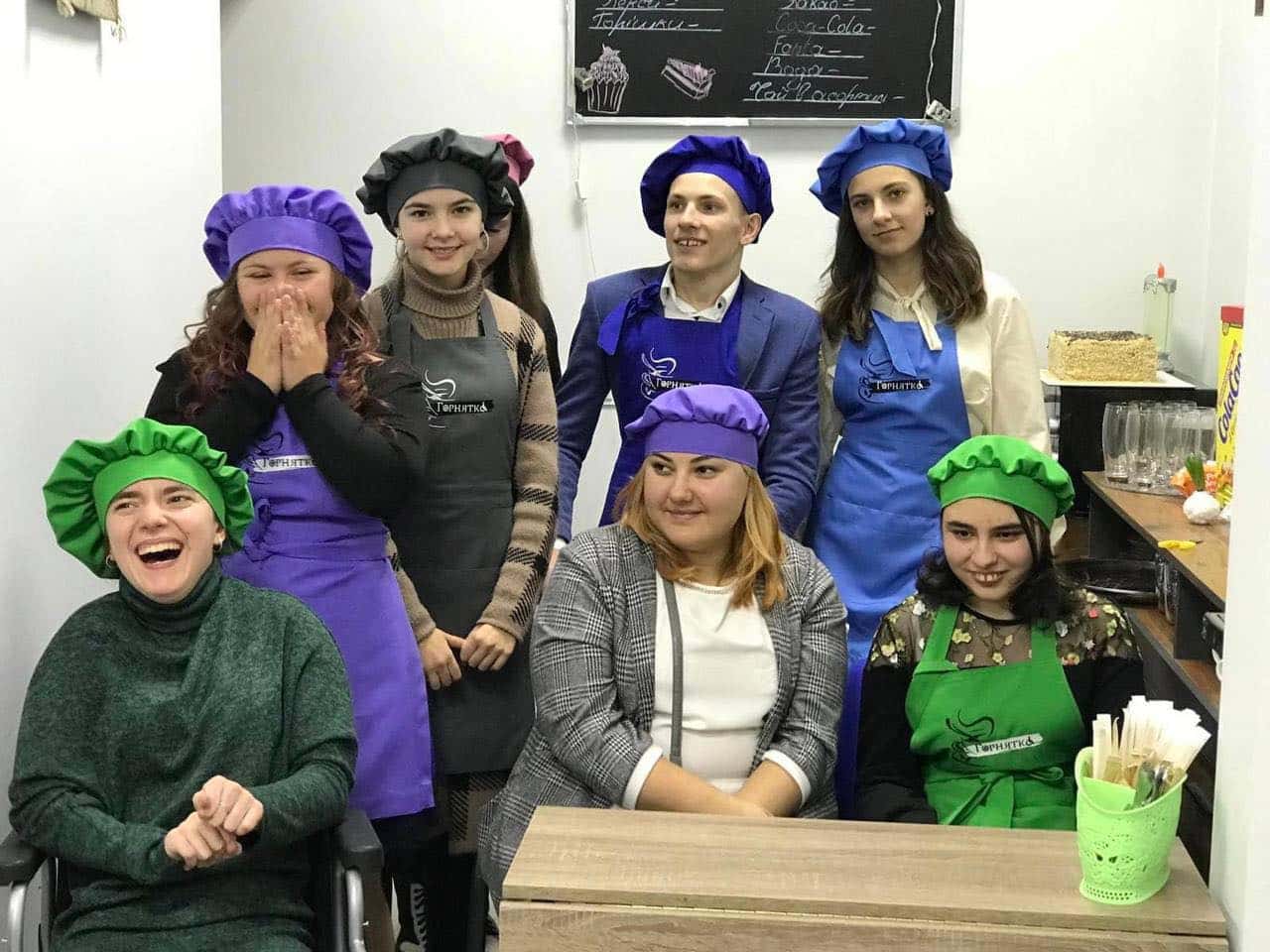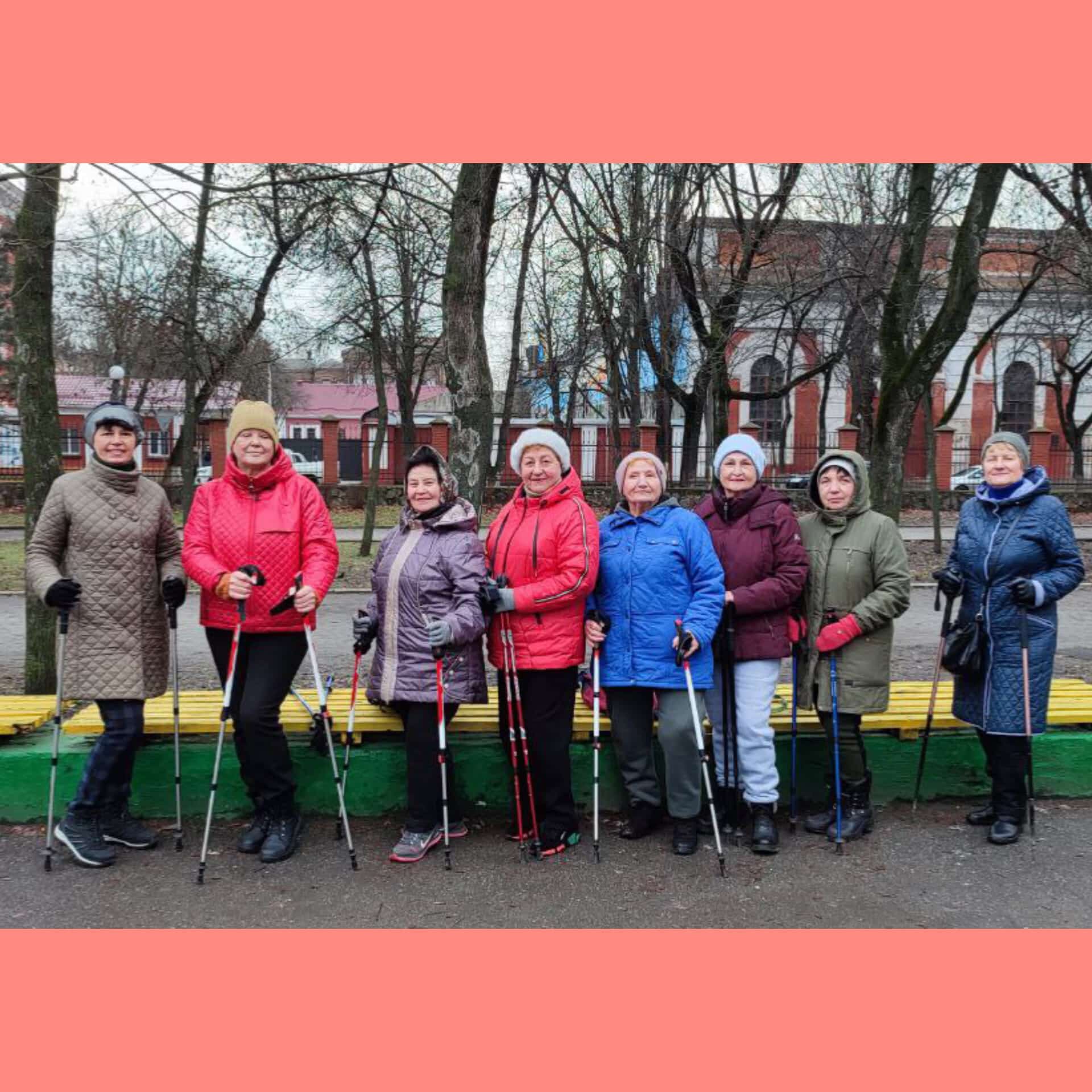There is a problem with a lack of awareness about dementia problems in Ukraine, whereas the popularity of this syndrome is quite high. We spoke with the representatives of the «Unforgettable» fund about the activities of the organization, the changes it had to undergo due to war, and their global plans as well.
How it all started
According to data from the Global Burden of Disease – GBD, in 2019 around 651 thousand people were suffering from dementia in Ukraine. And in 2950 this number is estimated to jump to a million. Despite such a common character of dementia in Ukraine, dementia is still not well-researched. The «Unforgettable» fund decided to change this situation and support those who face this problem.
Dementia is a syndrome when certain brain functions get damaged, and a person starts gradually losing memory, attention, and the ability to make decisions. Dementia is not curable, but it’s treatable with certain medication that helps maintain the disease and decrease certain symptoms, such as sleep disorder, hallucinations, etc.
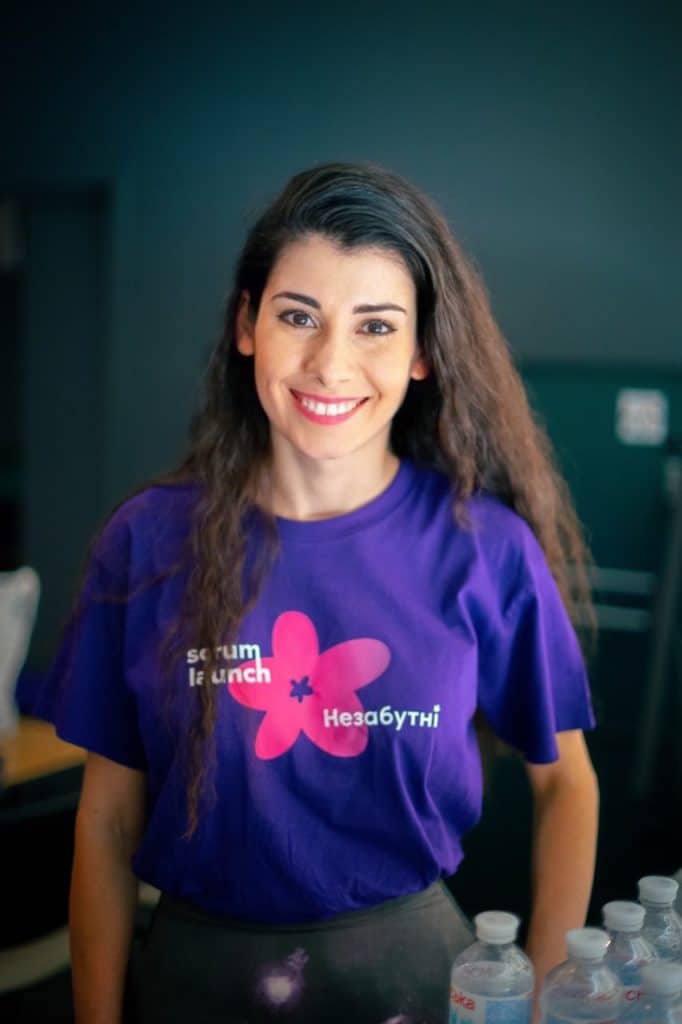
Iryna Shevchenko, the founder of the fund, was motivated to work on this issue not only because of statistics data but also because of a personal story. Iryna graduated in economical science and worked in business, but during her study, she’s been already very interested in charities. She created her mini-project: she would bring school concerts to the geriatric sanatoriums of Kyiv. After delivering her baby, she went to work in a charity fund «Zhyttyelyub» («Loving Life») that supports elderly people. While working in this fund, Iryna worked on projects fighting ageism. And at that time her husband’s grandmother got sick. The woman was already undergoing various gerontology courses so she was suspected of having dementia symptoms.
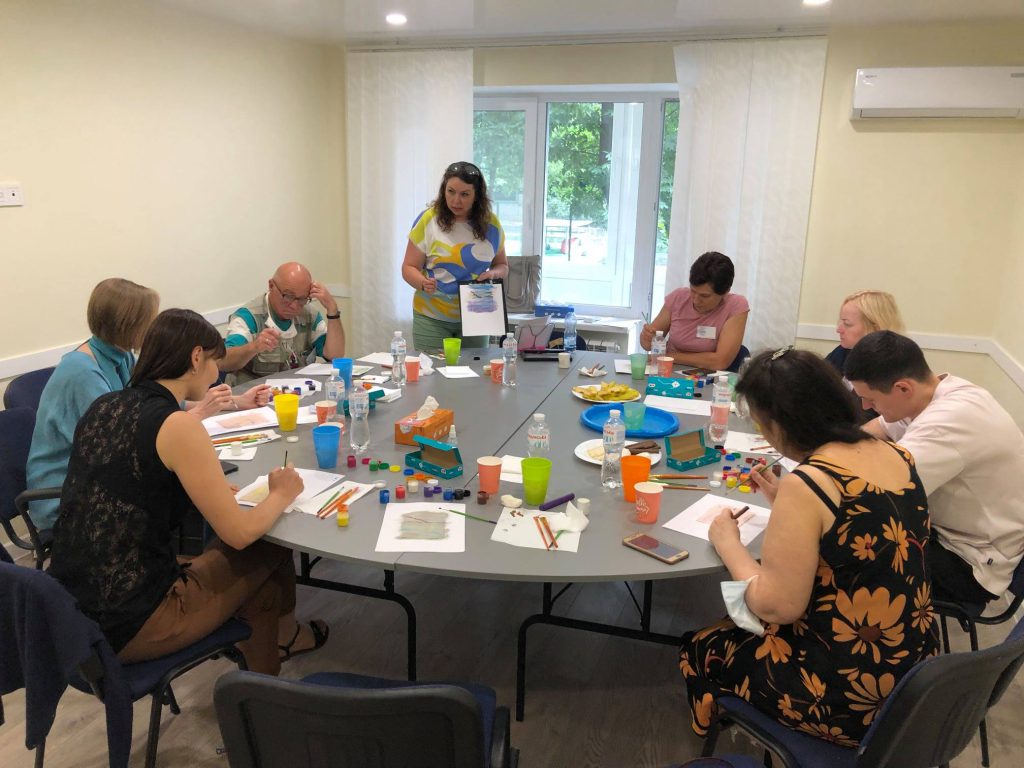
«And I understood that it wasn’t just because our grandmother was getting older, it was actually a quite serious issue. We called a doctor, and our grandmother was diagnosed with dementia. On the first night, we started researching the organizations in Ukraine that would be helping such people but there were none. I felt scared, and despaired, as I knew what dementia was and what was waiting for us, and I still couldn’t find any help. That was how I understood that I would need to do it all myself then. And I decided to establish and launch a new project, from scratch,» says Iryna Shevchenko.
The woman started attending various courses, creating a team, and doing their own research as there was literally no statistics data on dementia in Ukraine. At the beginning of 2021, the «Unforgettable» fund appeared. We have only five people on our team at the moment, but there are also a lot of volunteers such as psychologists, doctors, copywriters, and translators.
What the fund does
The fund is relatively young but has already determined its main activities and launched a few interesting projects. They decided to start with two directions.
The first direction is to build a society that is friendly to people who suffer from dementia. In such an environment people know about this disease, they are well aware of it and its symptoms, while the families who were faced with this syndrome don’t feel left out of society. The fund strives for this goal using the help of information campaigns and spreading guides. It was already invented and implemented in the world, so the team just adapts other countries’ experiences in their work. These guides contain information on dementia, its symptoms, and how to explain it all to others.
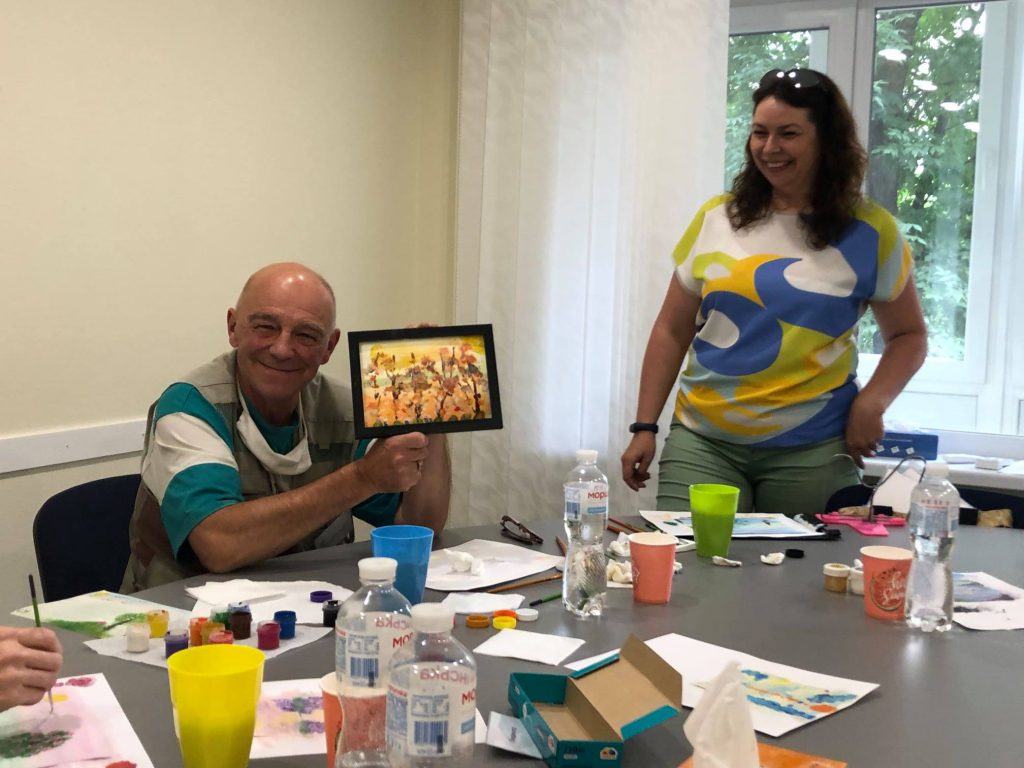
Another direction is helping people with dementia and families that have family members suffering from dementia. The fund team has also launched special psychological help teams to support these families. They started offline but then had to transition to the online format. Professional therapist hosts group therapy once a week in one group, and once a month in another group. We also started launching information webinars with the doctors and launched consultations. Now people can reach out to us with their questions either on social media or via post services.
«A lot of people think that it is harder to take care of people suffering from dementia. A lot of people actually think it’s three times harder than taking care of an elderly person with any other disease or health issue. Because you literally start losing a person who is still alive. It is very hard, both mentally and physically,» says Iryna Shevchenko.
Before the full-scale Russian military invasion, the «Unforgettable» team re-created an interesting world practice in Kyiv: it’s called Memory Cafe or Alzheimer Cafe. Thus, the «Unforgettable Cafe» operated in the local «Urban Space 500», and people suffering from dementia and their families used to attend this place once a month. The team worked on creating a safe space where these people would be accepted and interacted with, as the program included various fun and leisurely activities, dances, tasty food, art classes, etc. As the full-scale Russian military invasion started, the project was put on hold, however, the fund is planning on renewing its practice and initiative as they’ve seen the great value of what they were doing for the people who had to deal with dementia and wanted to be accepted in the society.
In September 2021, a photo project called «WE EXIST. PEOPLE with dementia» was launched in the Drama and Comedy Theatre on the Left Bank of Dnipro. The project features photographs made by the fund member Anastasia Nakornyeeva, and these photographs were exhibited right before the «Father» play in the theatre. Volunteers gave the visitors information brochures.
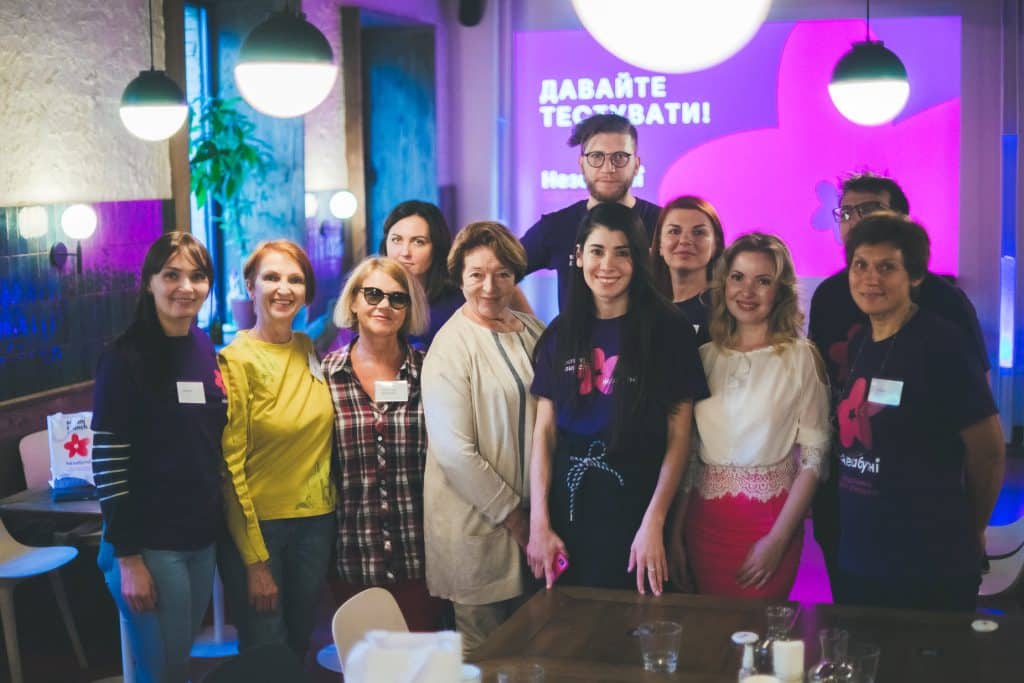
In addition to that, together with the IT company ScrumLaunch, the team has launched a new «Seven» app that helped notice and diagnose the first dementia symptoms. This app also helped develop memory and contributes to better communication in a family as everyone can be playing these games together. The app is being developed in Kharkiv, and last year the fund launched a lot of tests and was employing new team members. The project is currently suspended, but the partners assure us that the project will be back. It can be already viewed on Google Play Market, for example, even though the app itself is still in the development stage.
Fund during the war
The fund CEO and founder Iryna Shevchenko left Ukraine during the first days of the full-scale Russian invasion. She currently resides with her daughter in Geneva. She studies there dementia issues and is in close contact with various funds and organizations there.
«I knew from the very beginning that I wanted to go to Geneva, as I had my UN practice here and I know this city very well,» says Iryna. «But the main reason for me to choose this city is that there is an organization here called «Alzheimer Geneva» which is a part of a bigger Alzheimer Switzerland organization. We established cooperation with them, and now it’s a very important part of my activities here. I talk with various international organizations, looking for partners and new friends for the «Unforgettable» fund, learning new experiences, etc. I’ve been to Bern and London already,» adds Iryna Shevchenko.
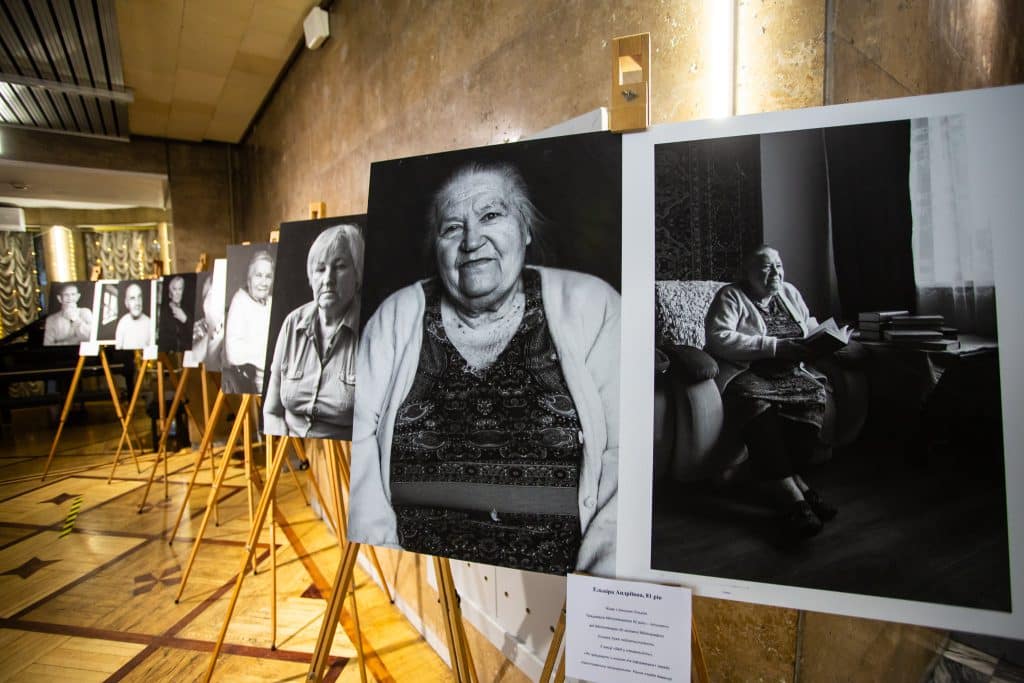
After the full-scale invasion, the fund operations wouldn’t stop even for a day. Their activity would only increase. The team was working intensely, communicating in chats all the time, being in touch, and continuing to work online.
However, the fund still has to undergo some changes, as its annual plans were different. Now they had a lot of new things to deal with as well.
«Now we are also working on deep and important research on how the war influenced people with dementia, what needs they have now, what changed for them. These are mostly semi-structured interviews with these people’s families or caregivers. We already possessed a database of these contacts, but as the full-scale war started, we had so many different forms and questionnaires for different forms of help, and we also had enough people ready to help us with this research. We would make samples to cover most of the regions and to demonstrate different development stages of dementia and other similar diagnoses,» says Iryna Zborovska, a project manager of the fund.
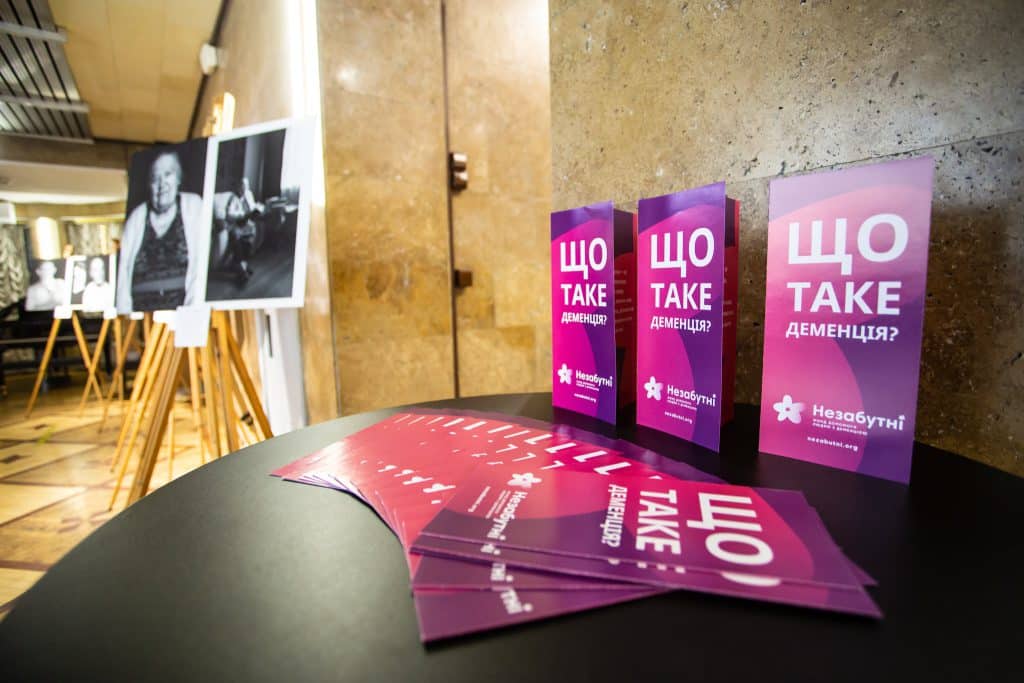
Now there is also another focus for the fund‘s work which is a global focus. This aspect covers cooperation between the Ukrainian ministries and international organizations.
«We realized that as we were quite a small organization there wasn’t really much we could do a small organization if we wanted to really change things. The problem was so much bigger than us, so we decided to involve the state. We sent letters to the Ministry of Health and the Ministry of Social Politics and received responses from them. Many other countries have their own National dementia plan, but not Ukraine. That’s why we decided to create such a plan,» says Iryna Shevchenko.
Alzheimer’s Disease International (ADI) is the biggest world organization that works with dementia issues, and 105 countries joined it. In particular, ADI also promotes National dementia plans (however, Ukraine is not on this list at the moment). Shortly the «Unforgettable» fund will go through the ADI accreditation process. In addition to that, the fund plans to join the Alzheimer Europe organization, and this organization was joined by 32 European countries already.
During the first months of the full-scale Russian military invasion, the fund was busy with emergency help. For example, they established medicine distribution. Iryna Shevchenko says that there is a list of free-of-charge medicine in Ukraine and it contains around 100 different products, yet there is not a single medicine for people with dementia on that list. That’s why the fund volunteers started looking for this medicine in Ukrainian pharmacies first and then distributed them among the people who would come to the fund for help. But they understood that it was only a temporary decision.
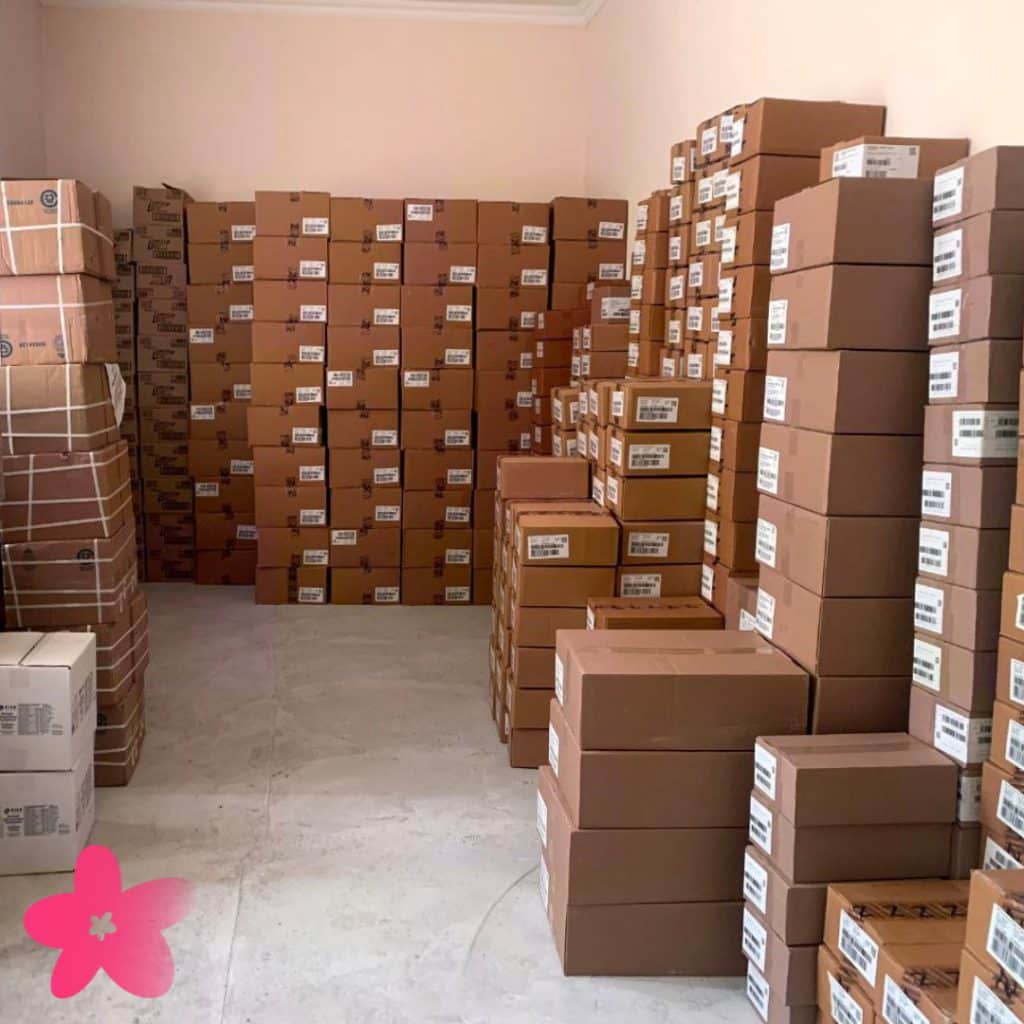
«The majority of people diagnosed with dementia have to take their medication regularly. And what is extremely important is that if one started to take dementia meds one cannot stop the source. Some people never even took any dementia medicine as it was always unaffordable for them. I started getting in touch with various organizations, and we created a list of the necessary medicine and started our search. We received help from the Americares organization as well. Now they bring massive batches of medicine to Ukraine, and our fund then distributes medicine in the regions. We also involve the Institute of Gerontology, Institute of Psychiatry, and National Service as well. People can receive their medicine at the specialized facilities and in person as well,» says Iryna Shevchenko.
The fund also takes care of the generators to produce electricity for the facilities where people with dementia are being treated and helped. In the first week of the full-scale war, it was such a necessity as the establishments couldn’t operate as they used to before. Organisation Americares also helped with that, so the «Unforgettable» fund was able to deliver four generators, two of them were delivered to the Chernihiv region, one was sent to Kyiv, and another one was sent to Vinnytsya. Now the fund received new requests from other people.
In addition to that, Americares also helped with evacuation and useful information. Together with the «Doctors without borders» organization, they created a fund «Unforgettable United». Here people can leave their requests for help, as well as find some useful information and articles. The website visitors can:
- get help in Ukraine and abroad;
- leave their request for medicine;
- apply for a consultation with a professional caregiver, psychologist, or therapist;
- find a map of the facilities that work with people with dementia;
- leave evacuation request;
- learn advice on taking care of and communicating with people suffering from dementia.
Together with «Doctors without borders» the fund had a joint evacuation project, with the professionals consulting and supporting the team that would evacuate people from the facilitators in the Dnipropetrovsk and Donetsk regions. The people who aren’t covered by the «Unforgettable» fund are being helped by the National Social Service of Ukraine. The fund has managed to evacuate nearly 50 people with dementia with their means only.
«It is a very difficult process to evacuate a person suffering from dementia. A person may not understand at all what is going on, and we cannot do much without a person’s consent. There has to be an official evacuation approval from the person’s representative or a guardian. Volunteers need to understand what dementia is and that every person may have different dementia symptoms. It is necessary to do a medical checkup and screening before the evacuation. A person with dementia suffers when dealing with any changes, so one should be very careful. If it is possible, it is advised to get some of the personal items that are important for the person, as they will help to create some form of psychological support for these people. A caregiver must be near the person with dementia at all times,» says Iryna Shevchenko sharing with us the details about the evacuation of people with such a diagnosis.
What is next
The fund gradually returns to its initial plans: they want to relaunch the webinars and distribute dementia guidelines again. For that purpose the fund expands its team and looks for new team members, right now it’s a good project manager and a good fundraiser with good English. In addition to that, the «Unforgettable» fund is always open for new volunteers. You can become their volunteer after filling out the form on their website. The fund always needs translators, copywriters, designers, photographers, and psychologists.
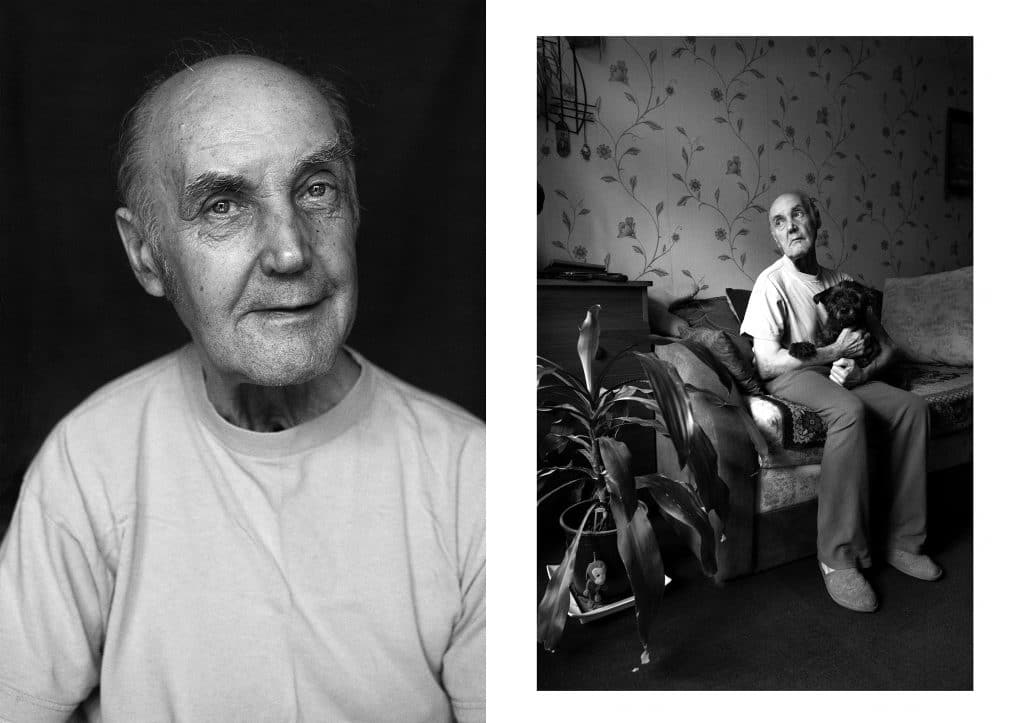
The fund also plans on renewing learning programs for social workers, caregivers, and medical personnel as well. Last year the fund has launched an online training program with social workers. Iryna Shevchenko says:
«We are considering dementia as a social phenomenon as well. Our task is to provide a high-quality lifestyle for those people who were affected by dementia. We won’t be able to heal them, but we can improve their lives and the lives of their family members. Here in Switzerland, I met a few people with dementia, and they live normal lives, with all the people accepting them. We really want it in our fund that people with dementia remained autonomous and independent for as long as possible.»

